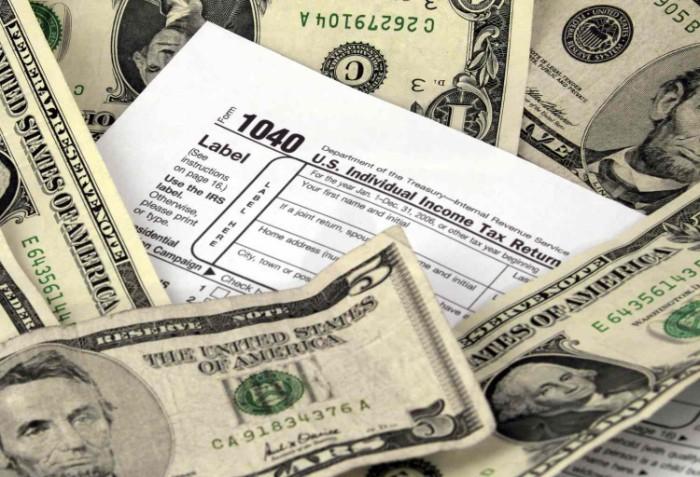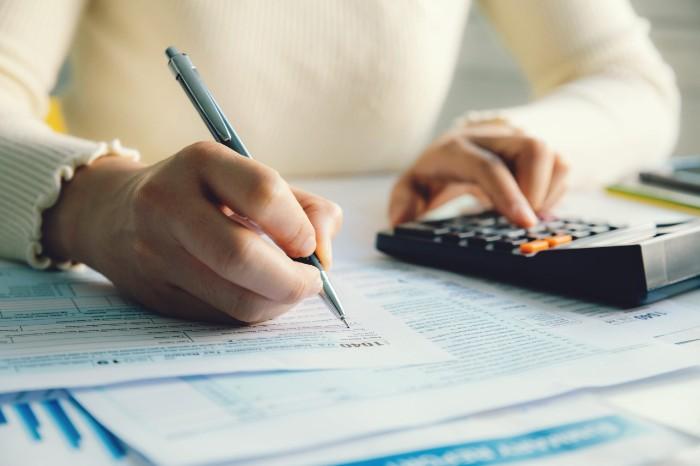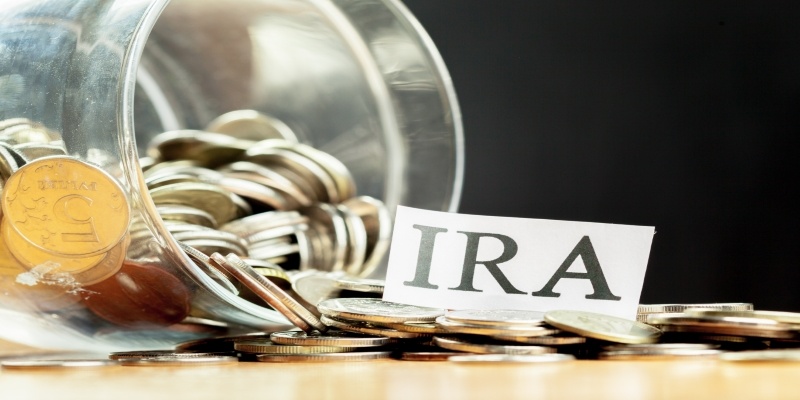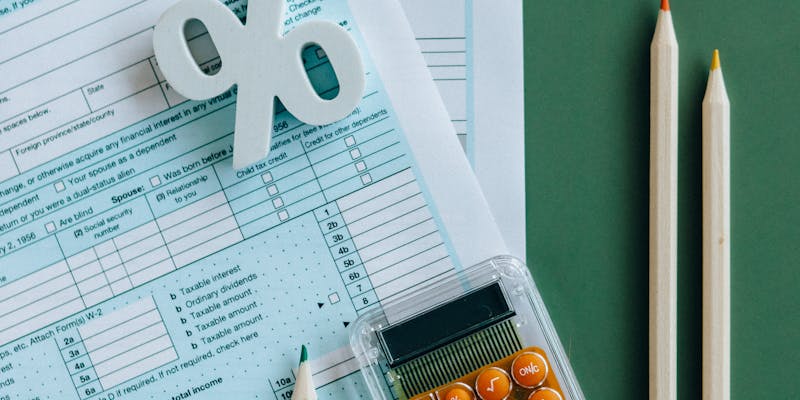Knowing what influences how quickly you might get back money you can help ensure that filing and getting a refund goes as smoothly as possible. So stay informed about when to expect your tax refund and make sure all systems go once that date arrives.
Know the basics of filing your taxes and when to expect a refund
In order to receive a tax refund, you must file your taxes first. Filing your taxes is typically the first step in understanding when and how much money you can expect to receive back from the government. Generally speaking, if you are expecting a refund, it will take anywhere from three weeks to two months for the Internal Revenue Service to process your return and issue a refund.
The amount of time it takes for the IRS to process your return and issue a refund depends on several factors, such as whether or not you filed electronically or by paper if you owe taxes, how accurate your information is, and what type of refunds the government is issuing at that time.
If you file your taxes electronically, you can expect to receive your refund 7-10 days after the IRS processes your return. When filing a paper return, it may take up to 6 weeks for processing and issue the refund.
You can also check the status of your tax return by using the IRS website or calling their toll-free number and providing your tax information. When you use the IRS website, you will be able to track the status of your return as it moves through the system. This can help give you a better idea of when to expect your refund.
By understanding how filing taxes work and when to expect a refund, you can plan ahead and budget appropriately. If you have any further questions or need additional help with filing your taxes, it is best to reach out to a tax professional for assistance.
Understand the difference between the tax filing deadline and the tax refund timeline

It's important to remember that the federal income tax filing deadline and the timetable for receiving a refund are two different things. The IRS typically sets a deadline by which taxpayers must file their returns, usually April 15th. However, even if you meet this date, it doesn't guarantee that your refund will arrive on time. When to expect your refund is based on several factors, including how you filed and your return's accuracy.
It's also important to note that if you are owed money from the IRS but don't file a tax return, you may not receive it. To ensure that you receive any money due to you, make sure to file your taxes in a timely manner and provide accurate information.
The timeline for when to expect your tax refund can vary depending on several factors, such as how you filed and the accuracy of your return. When filing taxes, it is important to be aware of both the filing deadline and the refund timeline in order to plan accordingly.
Learn how to track and estimate when you might get your refund
The IRS also offers an online tool called “Where’s My Refund?” which allows taxpayers to track the status of their refund. This tool can be accessed on the IRS website or using the IRS2Go mobile app and is updated daily after 8 pm EST.
When you use the Where's My Refund tool, you will be able to see the progress of your refund through three processes: return received, refund approved, and refund sent. When filing electronically, taxpayers are typically able to use this tool within 24 hours after their return has been accepted by the IRS.
Find out about common factors that can slow down or speed up the process

As previously mentioned, the timeline for when to expect your tax refund depends on several factors. When filing taxes, it is important to be aware of any issues that could slow down or speed up the process. Common factors that can impact your refund time frame include:
- Filing electronically vs paper return: When you file a return electronically, your refund will be processed quicker than if you filed by paper.
- Owing taxes: When you owe taxes to the government, it can slow down the timeline for when to expect your refund. The IRS must process any outstanding tax payments before issuing a refund.
- Accuracy of information : When filing a return, it is important that all information is accurate in order to expedite the processing. When any mistakes are found, it can slow down or even delay your refund.
By being aware of these common factors and understanding when to expect your tax refund, you can plan ahead and budget accordingly. By filing taxes accurately and on time, you can ensure that you receive any money due to you in a timely manner.
When to expect your tax refund will help you know when and how much money you can expect from the IRS. When filing taxes, it is important to be aware of both the filing deadline and the timeline for receiving a refund as well as any issues that could slow down or speed up the process. By preparing in advance, you can ensure that you receive any money due to you from the IRS in a timely manner.
Know what happens if you don't receive your refund on time
In some cases, a tax refund may be delayed due to an error or other issue. If you do not receive your refund on the expected timeline, it is important to contact the IRS immediately to determine why your refund has been delayed. The IRS can provide information about what steps should be taken in order to resolve any issues and obtain your refund.
If you are owed money from the IRS but do not receive it on time, there may be certain penalties or interest charges that will apply. When filing taxes, it is important to be aware of both the filing deadline and the timeline for when to expect your refund in order to avoid any potential penalties.
Knowing when to expect your tax refund is important in order to plan ahead and budget accordingly. By understanding the timeline for when you should receive your refund, as well as any potential issues that may slow down or speed up the process, you can ensure that you receive any money due to you from the IRS in a timely manner.
When filing taxes, it is important to be aware of both the filing deadline and the timeline for receiving a refund. By preparing in advance, you can ensure that you receive any money due to you from the IRS in a timely manner.
FAQs
How do I get my FBR refundable tax?
You can get your refundable federal tax refund by filing a return with the IRS. When filing your return, you will need to provide information about yourself and any income or deductions that apply to you. The IRS will then use this information to calculate the amount of your refundable tax credit.
How do I check when my tax refund will arrive?
You can check the status of your tax refund by using the IRS website or by calling their customer service line. When you file a return, they will provide an estimated time frame for when you should expect your refund. You can also use the “Where’s My Refund” tool on the IRS website to check the status of your refund.
What happens if I don't receive my tax refund?
If you do not receive your tax refund on the expected timeline, it is important to contact the IRS immediately to determine why your refund has been delayed. The IRS can provide information about what steps should be taken in order to resolve any issues and obtain your refund.
Conclusion:
In summary, it is important to know when to expect your tax refund so that you can be prepared and get your money as quickly as possible. Knowing why the timing of your refund might be impacted such as if you have made a mistake on your filing or because of fraud protection processes and how you can help speed up the process can give you peace of mind and help ensure that you receive your refund right away.

Explaining the Mechanics: Insights into Working and Premium Determinants

Different Ways Home Buyers' Agents Earn Their Money

A Comprehensive Guide for Capital Gains Tax Exclusion for Primary Residences

Guide to Penalty-Free Early Withdrawals from Your IRA

How YouTube Makes Money Off Videos

USDA Home Loans: Everything You Need to Know

Chapter 13 Bankruptcy Explained: A Comprehensive Guide

How to Pay Your Property Tax Bill

Ways To Report 1099-MISC Box 3 Payments on Your 1040 for Tax Year

Best Dental Insurance for Braces of 2023

When to Expect Your Tax Refund
